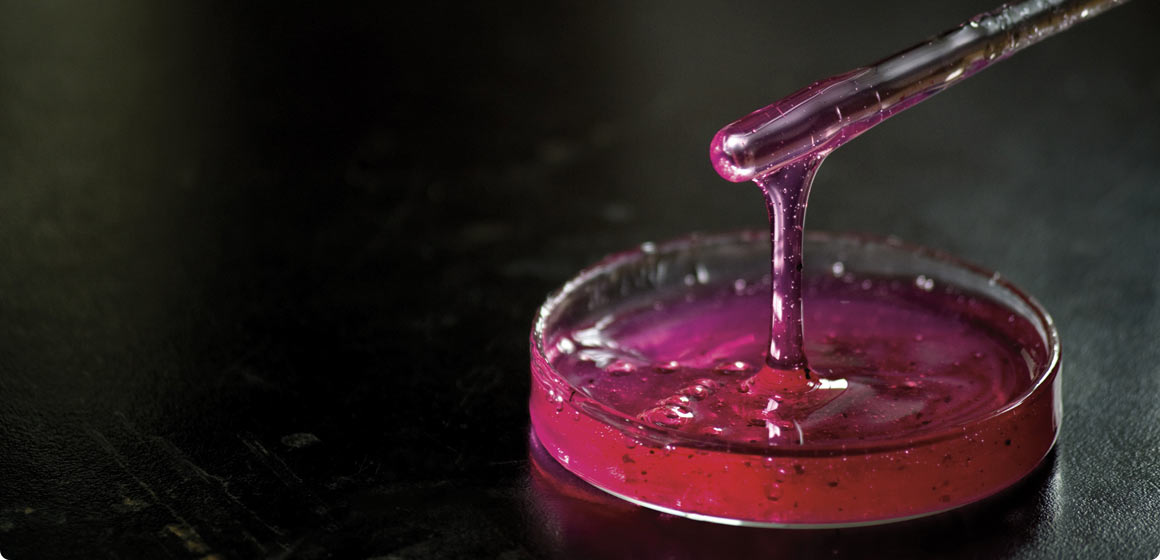
A revolutionary super gel, found to reduce the post-operative complications of sinus surgery, was last year commercialised in a significant collaborative deal for the University of Otago. Now, scientists are looking at a number of other applications for the gel with the potential to tap into an international market worth around $US1.8 billion each year.
The gel was developed by a team of Otago scientists led by Emeritus Professor Brian Robinson, Professor Lyall Hanton and Associate Professor Stephen Moratti, all from the Department of Chemistry, in partnership with the University of Adelaide and Wellington-based Robinson Squidgel Ltd. They were highly commended in the emerging innovator category of the 2012 New Zealand Innovator Awards.
Derived from chitosan – a polymer extracted from the unlikely source of crab shell and squid pens – the gel was more than five years in development. Work on it began after Professor Robinson's son, Wellington-based ENT surgeon and Otago alumnus Mr Simon Robinson, challenged his father to find a biological substance to help solve the disheartening and common complications that often follow sinus surgery. Scarring and adhesions that block sinus passages affect around one third of patients – and often require corrective surgery.
Chitosan has a long history of medical use. The research team found a way to make it water soluble and then turned it into a gel by cross-linking with oxidised dextran, a starch-like chemical. Extensive sheep and human trials then showed that, when injected into the nasal passage after surgery, the gel formed a protective coating over the wound, preventing the formation of adhesions, and has been found to have excellent blood clotting properties, without any negative side effects.
The patent for its sinus surgery applications was sold to a leading United States-based medical technology company, Medtronic, in 2011 – facilitated by Otago Innovation Ltd – in what was hailed as an important coup for Otago's research commercialisation.
It is estimated that “squidgel” has the potential to be of benefit in some half-a-million endoscopic sinus operations each year in the US alone – and several thousand each year in New Zealand.
Already commercialised for use in sinus surgery, the anti-adhesion and haemostatic properties of "squidgel" are being explored for a number of other applications.
Other applications for the gel are now being explored, which may offer further lucrative commercialisation opportunities. Hanton says the adhesion barriers, market worldwide is worth about $US1.8 billion annually and the significance of this has been recognised with a recent grant from the Ministry of Business, Innovation and Employment for a further $6.95 million over six years.
Research into three other applications are well underway. Animal trials are currently being undertaken for the gel's potential use in spinal surgery, to help prevent the painful scarring and adhesions that can result following laminectomy procedures to repair prolapsed discs. It is hoped that human trials can begin in about 18 months.
Ethics approval has also been gained for animal trials to look at the gel's ability to prevent the formation of adhesions following abdominal surgery and, as it has been found to be non-neurotoxic, the gel's powerful haemostatic properties are being investigated for potential neurosurgery applications as well.
